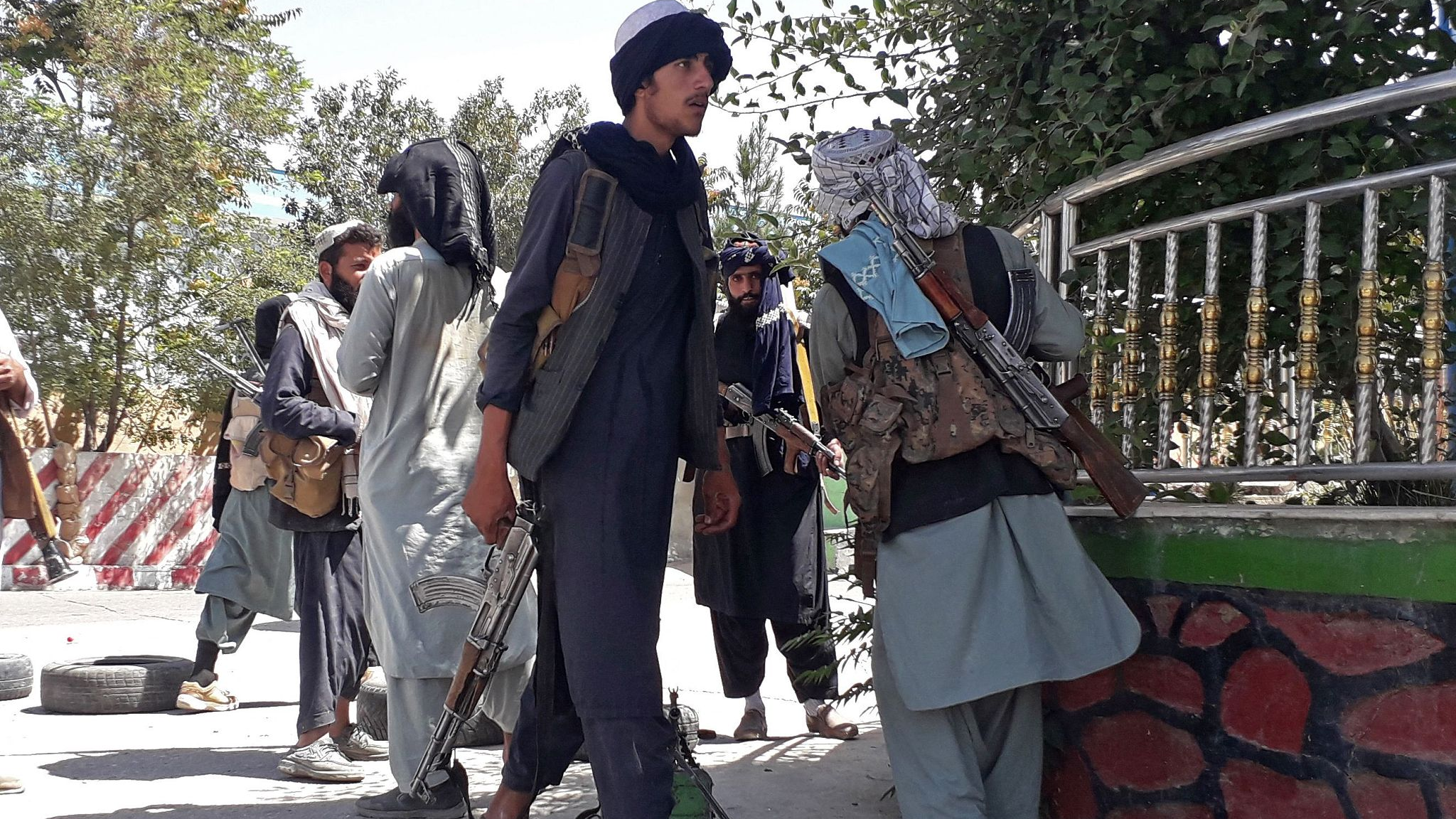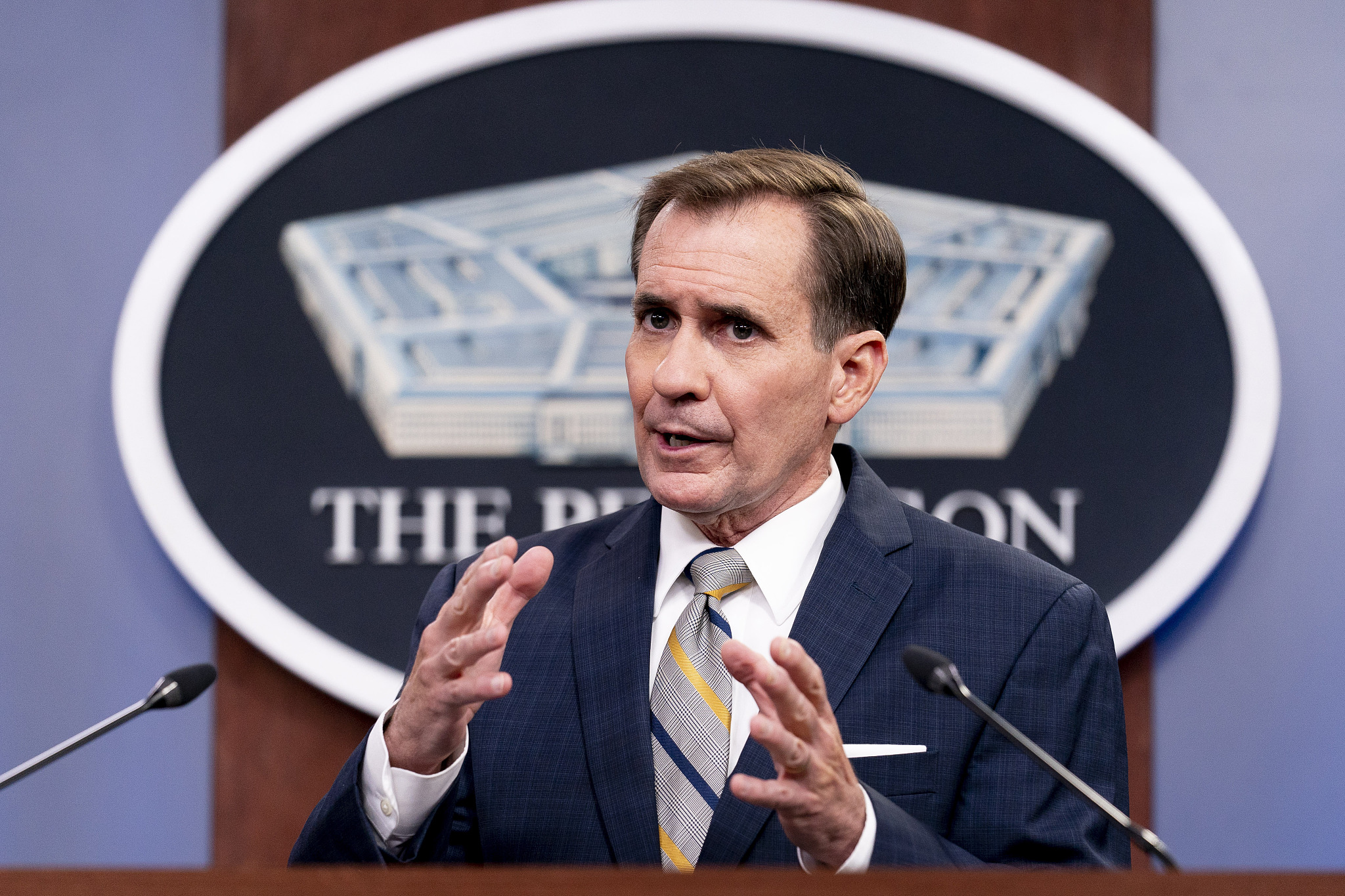
Taliban fighters stand at roadside in Ghazni as Taliban move closer to Afghan capital after taking Ghazni, capital city of Ghazni province, Afghanistan, August 12, 2021. /CFP
Taliban fighters stand at roadside in Ghazni as Taliban move closer to Afghan capital after taking Ghazni, capital city of Ghazni province, Afghanistan, August 12, 2021. /CFP
Editor's note: Jonathan Arnott is a former member of the European Parliament. The article reflects the author's opinions, and not necessarily the views of CGTN.
In America, it was known as "Operation Enduring Freedom." In the wake of the 9/11 terror attacks, the clamor for military action in Afghanistan was loud. The United States and its allies were clear that the Taliban and Osama Bin Laden were the enemy. They did not know their history.
Defense against foreign invaders is hard-wired into the consciousness of Afghanistan. The word "mujahideen," meaning "those who struggle for Islam," became used for the disparate guerrilla forces fighting against the Soviet Union.
Afghanistan has the ideal terrain for decentralized tactics, with harsh mountainous terrain inaccessible to traditional heavy armed forces. Fighters would appear, launch a rapid attack, and then disappear again. In the 1980s, ironically, the United States had backed the mujahideen in their struggle against the Soviet Union.
International relations is not a "zero-sum" game. It is possible for both sides to be wrong. We might reasonably condemn the Taliban for their treatment of the people in Afghanistan, for executing surrendering soldiers, forcing women and young girls into marriage, or for providing a safe haven for terrorists. We might also reasonably condemn the military action taken by a U.S.-led coalition because "Operation Enduring Freedom" never had any realistic chance of achieving enduring freedom.
Undertaking any military action against another sovereign state is a grave and serious decision, one which should never be taken lightly. To begin with there is a moral question, one debated by philosophers for millennia. But even if we were to suppose that the moral case were overwhelming, morality alone would not be sufficient to justify Western actions. There are, in my opinion, three other critical questions which must be asked before any decision to undertake a military intervention.
First, is there a clearly-defined military objective? The aims of the invasion of Afghanistan were somewhat muddled, to say the least. Many pretexts could be found: the 9/11 terror attacks, the Taliban's oppression of their own people, the trade in heroin. As anyone in business will know, projects should have criteria to determine success or failure. The nature of "success" in Afghanistan was never clearly enough defined. The West did not know specifically what it wished to achieve.

Pentagon spokesman John Kirby speaks about evacuating some personnel from the U.S. Embassy in Kabul during a briefing at the Pentagon in Washington, D.C., U.S., August 12, 2021. /CFP
Pentagon spokesman John Kirby speaks about evacuating some personnel from the U.S. Embassy in Kabul during a briefing at the Pentagon in Washington, D.C., U.S., August 12, 2021. /CFP
Second, is victory even possible? The United States could – and should – have learned that lesson from its ill-fated intervention in Vietnam. It did not. Most of the same conditions applied: a determined resistance capable of receiving assistance overseas, in terrain unsuited to conventional military forces, across a huge land mass.
Third, what happens next? Removing a government does not provide any guarantees that a new one will be successful. Democracy requires a "demos": a common belief in the system shared by the vast majority of people within the nation. It is not something which can be imposed by a third country, lest we end up with a repeat of the ominous words of the Don MacLean song "we had to burn the city because they wouldn't agree that things work better with democracy". If we create a geopolitical vacuum, we should not be surprised when something comes along to fill the void.
Having entered Afghanistan without any means of securing long-lasting peace, the United States and its allies could not hope to prevent the Taliban from regaining control of the country forever. Worse still, by planning their departure over a number of years, the Taliban knew that all they needed to do was to wait. There was only one real surprise: the speed of their movement.
Slogans are not strategy. In the 18th century, the British philosopher Edmund Burke said: "Those who do not know history are destined to repeat it." Countless lives have been lost: civilians, soldiers and military contractors. Mistakes are often made with foreign policy because of information which was not known at the time. Situations can evolve quickly, and information is frequently incomplete. Such mistakes, even if not always excusable, are at least understandable. With the benefit of hindsight we can see the bigger picture, one which could not have been seen at the time.
There is no such excuse in Afghanistan. The relevant information was already known, and yet the military action was undertaken anyway. This episode will go down in history as an unnecessary, terrible and wasteful mistake – one which we could, and should, have easily avoided.
(If you want to contribute and have specific expertise, please contact us at opinions@cgtn.com.)

